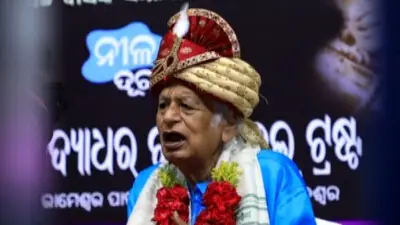Recommended Stories
By Ashutosh Mishra
Bhubaneswar: The Naveen Patnaik-led Biju Janata Dal (BJD) will in all probability support NDA government’s controversial Citizenship (Amendment) Bill in Parliament. It’s refusal to do so, which seems highly improbable, has the potential to change the dynamics of its existing relationship with the Modi-led Centre.
The Bill that aims to provide citizenship to non-Muslim refugees from Pakistan, Bangladesh and Afghanistan, has been slammed by the Opposition which has questioned it on secular grounds as it discriminates in the matter of granting citizenship on the basis of religion.
Irrespective of the fact that apologists of the Bill have sought to describe it as a case of “ positive” discrimination necessary to protect the interests of the persecuted minorities in the countries mentioned above there is no denying the religious tilt of this crucial piece of legislation. A senior Congress leader has gone to the extent of threatening that the party would move the country’s highest court over the issue.
All this should make BJD, which had ended its 11-year-old alliance with the Bhartiya Janata Party (BJP) in Odisha in 2009 apparently to protect its secular image, wary of supporting the Bill. But if still, most political pundits believe that the party would throw in its lot with the NDA on the issue in the Parliament it is because compulsions of realpolitik are likely to overrule ideological considerations.
Interestingly, even when the BJD-BJP alliance broke in 2009 with Naveen Patnaik’s party accusing its coalition partner of siding with communal forces, an apparent reference to the role of Hindutva outfits in the Kandhamal riots of 2008, there were many who felt that the BJD was only making a show of being secular. The party, in any case, wanted to get rid of BJP as a partner in government as the alliance had already served its purpose of establishing Patnaik as the state’s undisputed leader.
Besides, the BJP which was seen as piggy riding the BJD was becoming more and more demanding. Kandhamal riots gave Patnaik a convenient excuse to dump the saffron party which had turned into a political liability. The façade of secularism suited the BJP at that point of time and served an important political purpose as reflected the results of 2009 elections.
The new-found friendship between Patnaik and Prime Minister, Narendra Modi is fresh proof that for BJD’s supreme leader political expediency invariably takes precedence over principles. Keenly aware that his cash-strapped government cannot keep many of its politically crucial welfare schemes going without generous financial assistance from the Centre he has in the last few months extended support to the BJP-led NDA on many important issues, all in the name of safeguarding either national interest or the interests of the state.
His avowed policy of equidistance from BJP and Congress is a classic example of political double talk which dons different garbs at different times. While sometimes it masquerades as ‘pragmatic flexibility’ at other times it is masked as ‘ issue-based’ support to serve the interests of Odisha. One should not be surprised if the BJD extends support to the Citizenship ( Amendment ) Bill in parliament and justifies it in a similar manner. It’s not doing so will be a bigger surprise.
(DISCLAIMER: This is an opinion piece. The views expressed are author’s own and have nothing to do with OTV’s charter or views. OTV does not assume any responsibility or liability for the same)













